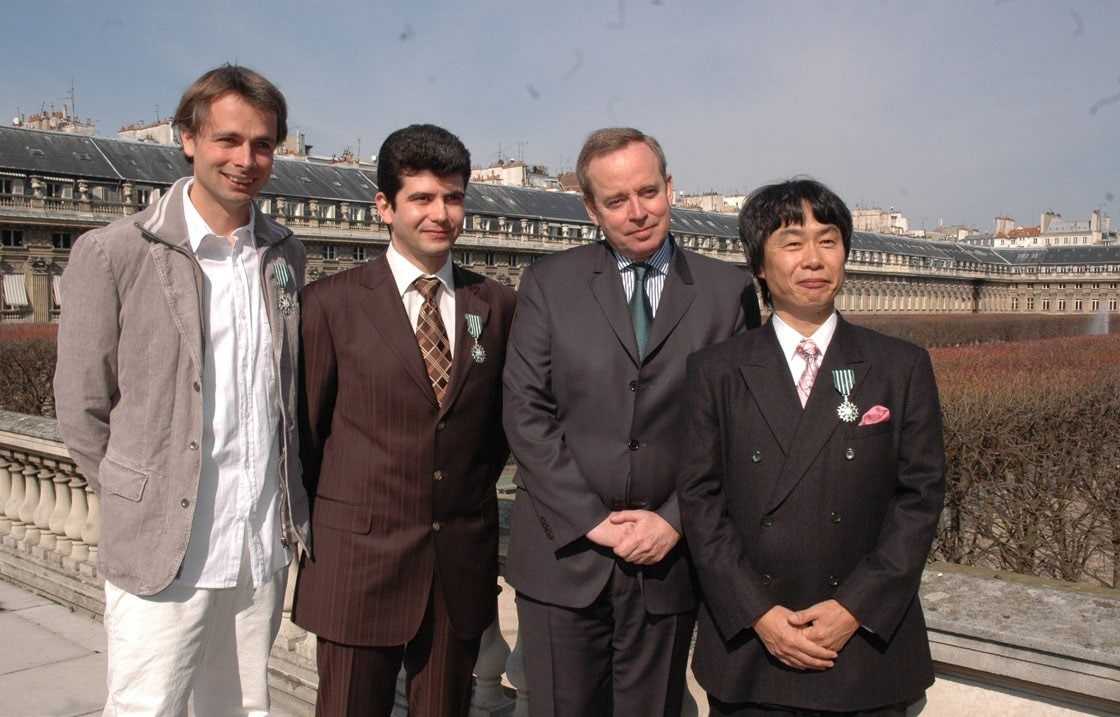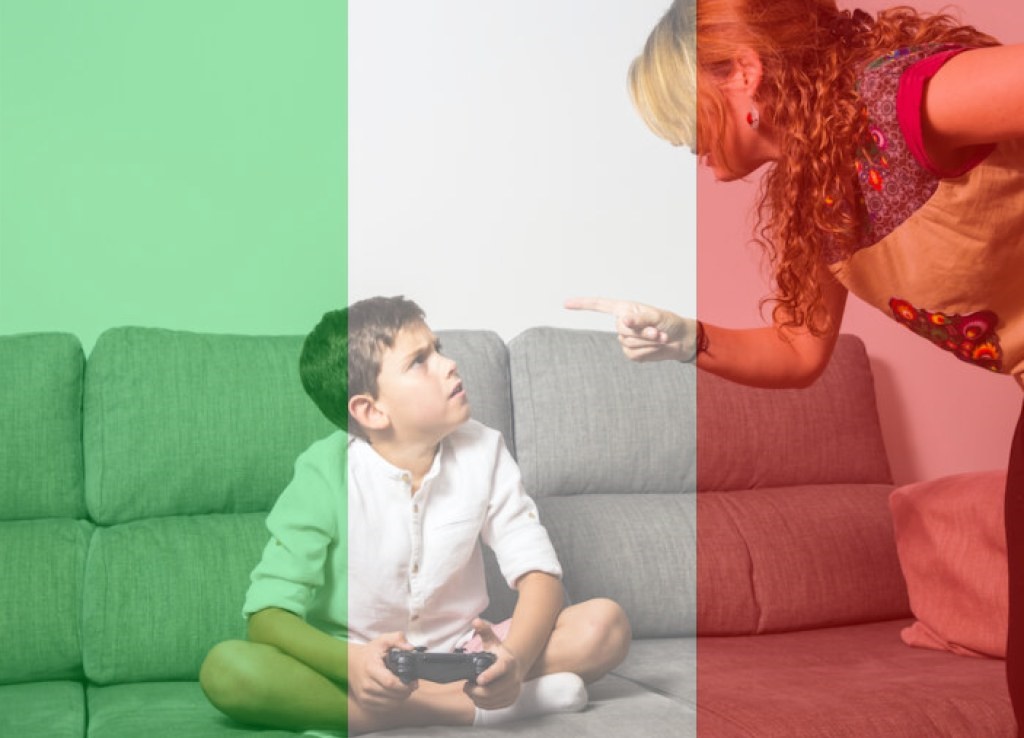Video games are now a well-integrated medium in popular culture: why does Italy still tend to repudiate games and players?
There is no way to get around it: video games, in Italy, still do not have an easy life. Which is strange, considering that (with difficulty) a lot of Made in Italy is emerging. We had the opportunity (as well as the pleasure) to interview individual authors and entire development teams on the subject, while many titles have openly transposed our Italian character. It’s true, indie experiences like Killer Chambers and triple A projects like Mario + Rabbids were born on the boot by chance. But there are also games that are openly children of our culture. Let’s talk about Game Over Carrara, Milanoir and, why not, the immortal memory of Bud Spencer with Slaps & Beans.
With such a list, it would at least arouse astonishment just to think of a closure towards the video game as (let’s face it) an art form. But if we’re here, you could easily guess why. We didn’t even know how openly to address the issue, but the opening words of our review of Nintendo Switch Sports convinced us: if there is a moment in which it is necessary to talk about it, it is now. Because seeing a passion that has always given us emotions and memories condemned only for its interactivity, in a period of supposed open-mindedness like 2022, is simply inadmissible.
“I see opium”
So Italy hates video games? There are two answers, and they depend on the generation to which the question is asked. If you are even reading these lines, it is very likely that some of you do not see the problem. Unfortunately, over time, each generation becomes less and less receptive to the unstoppable change of what, for good or bad, does (and is) culture. Just try to think of the word “PlayStation”. The Bel Paese offers two different pronunciations: one is that of the players, and the other comes from the usual indignation (usually of a parent) which, making the term a synonym of the entire videogame category, denigrates it as unworthy use of one’s time.
Naturally, the question of Italian videogame phobia has recently re-emerged when the medium, together with the web hosting these same words, ended up in the sights of the senator. Andrea Cangini. Or rather, actually speaking of a single (and metaphorical, hopefully) viewfinder would be inaccurate. His latest book, “CocaWeb: a generation to be saved”, is also the result of studies conducted by experts who received a hearing in the Senate. In the many interviews aimed at promoting this choral project, Cangini rarely tends to specify that the field of experience of scholars consists in neurology. At a guess, given the comparison with drugs, it is not so much a question of this as of a universal analysis of excesses.
I’ll be in tomorrow morning @ SpecialeTg1 to talk about my book “#COCAWEB, A GENERATION TO SAVE “. Among others, there will be a boy who will tell about his experience as a former Web addict: nothing but exaggerations … pic.twitter.com/RrwssmNYzm
– Andrea Cangini (@andrea_cangini) April 11, 2022
The neighbor’s grass is increasingly… web – Italy and video games
Before delving into the matter, let’s try to deal with the reputation of video games outside the borders of Italy. Believe it or not, even the cradle of gaming culture is not exempt from the same discrimination. Yes, Japan also has its faults in this regard. The creator of Super Mario and The Legend of Zelda, Shigeru Miyamoto, has only recently received recognition of its cultural merits. To make it all the more important is that the title, literally called “Person of Cultural Merit”, is awarded only once a year. In short, the games are (or they can be) culture.
Our backwardness in not having recognized it yet can be seen, more strikingly, just outside national borders. We are not just referring to the fact that French schools encourage you to play Valiant Hearts to study the First World War. The photo you see below portrays the creator of Rayman, Michel Anceltogether with the aforementioned Shigeru Miyamoto and the French Minister Renaud Donnedieu de Vabres, receive the title of Knights to the Order of Arts and Letters. One would think that this is a recent photo, but dates back to 2006. Sixteen years ago, our sense of revenge on our transalpine brothers was felt on the synthetic grass of a football field, but at the level of open-mindedness one wonders if we are the ones who have to regain ground.

The dog that bites the owner is more news – Italy and video games
But we also try to find gods you deserve in the thesis presented (with a certain degree of desperation) by Senator Cangini. Even those who are writing to you have some concern about the exposure of the youngest to the world of social media and smartphones at an increasingly tender age, like the “parking them in front of the TV” of relatively few years ago. However, we are not desensitized to the concept of excess: we do not underestimate the tendency of gamers to recognize their limitations. After all, Ready Player One (the adaptation on the big screen) is a true celebration of the video game, but it ends with the importance of knowing when to unplug as the fulcrum of its morale.
Where Cangini’s tour of promoting the CocaWeb project tends to lose its bearings is the emphasis on losing oneself in the digital world. We do not doubt that it can happen, but making a minority your own statistical sample is a great way to break down any thesis you want to support. Of the aforementioned tour, the stage that inspired this entire special is the intervention on TG1: in addition to the anachronistic example of a “digital junkie” who mentions the now defunct service MSN Messengerthe senator referred to the hikikomori. A phenomenon that, in the problematic Japan from which it comes, anticipates the advent of video games by several years.
Sorry to have aroused the ire of video game users and programmers, but if the WHO has recognized gaming disorder among addictions, South Korea requires children under 19 to disconnect at 24, China authorizes 3 hours of game play per week , there is a problem#CocaWeb pic.twitter.com/rNQlypwmEw
– Andrea Cangini (@andrea_cangini) April 18, 2022
An uncovered nerve – Italy and video games
In short, the treatment of the entire gaming issue as a “social scourge” (or even just the distant and detached use of the term “question”) goes to delegitimize the concern of non-players with an aftertaste of sensationalism. We don’t want to lie to you: if you allow us a mea culpa, the whole of journalism is (even partially) about making the news. However, if the generation of gamers and Internet users is to be “saved”, perhaps we can simply intervene elsewhere. If you read the author’s short autobiography at the bottom of the article, you would see a common point for many lovers of this medium.
L’escapism it has always been one of the possible points of contact with fiction, but perhaps the interactivity of the video game has elevated it to hallucinating and hallucinating self-induced illusion. But even if we want to see the truth, it is possible that the real problem is the reason behind this escapism. It may be thesystemic marginalization of the “weakest” in the untouchable institution of education, or perhaps the frustration due to the unsatisfactory work situation to which it increasingly leads. But if you stop to interact with gamers, you may find that the number of one-way trips to the imagination is smaller than it seems.

A beating heart (with buttons) in your hands – Italy and video games
The disinformation that, outside the trade press, circulating about the videogame medium is simply aberrant. The most serious thing, in this sense, is that it is disinformation with a certain following. In times of pandemic, Fortnite has been spoken of very well in its approach to armored people at home: the same news bulletin mentioned above has dedicated an excellent service to the in-game concerts of Ariana Grande and Travis Scott. Of course the wind changed as soon as it took off our face masks, back to a music that, frankly speaking, is starting to get boring.
It’s a bit funny to see that “the toy in hand“The only concern about video games remains, both for students guilty of ignoring duty and for young people trained but” time wasters “, when in reality there are other pitfalls in the medium. The concept of free-to-play, where the game itself is free but indefinite in-game purchases are not, still remains an almost entirely exclusive notion to the players themselves. Unfortunately, the same also applies to the Activision scandal, the too young existence of unions in the gaming industry and many other topics. Stopping at a simple “Turn that thing off”, in 2022, is a symptom of ignorance.
The first Xbox is from 2001 pic.twitter.com/eotF0FeWcw
– Fabio Chiusi (@fabiochiusi) January 19, 2022
Communication in the age of telecommunications – Italy and video games
The sensationalism we alluded to can also be seen in the fixed appointment with video games, in the news, when a new Grand Theft Auto comes out. The series is undoubtedly best known for the potential for potential carnage on the streets, but there is also a storyline. The protagonists are anti-heroes, always on the wrong side of the law, who (with the exception of Trevor Phillips, “the average player personified” on the admission of the creators, in the fifth chapter) reduce crimes to a minimum. On the other hand, the decontextualization made the fortune of the Superman comics in the sixties. On the covers, in fact, there was talk of “super”, but not of “hero”.
Getting informed is always good, especially when it takes hold a new cultural current. And to prove it is none other than a video from Nintendo itself, ironically aimed at illustrating a Nintendo Switch function for parents. In its use of two Super Mario antagonists, namely Bowser and his son, the video transforms them into surrogates for the viewer. While Parental Controls allow parents to interrupt a gaming session at will, it is the father’s approach in the video that sets a good example: taking an interest and, at best, getting involved. In other words, therefore, prevent immersion from causing isolation.
At the risk of playing for granted, it’s game over – Italy and video games
Our boot is taking steps forward in recognizing that videogame for the reality it is, but never denying itself to retreat quickly when the water turns out to be too cold. The latest sad turning point in the world of eSports. For a country so convinced in conceiving the video game as a waste of time, on the other hand, elevating it to healthy competitive competition sounds like a heresy. For this reason, in a real slap in the face of the sector given the context from which it arrived, the month of May opened with the …
















Leave a Reply
View Comments